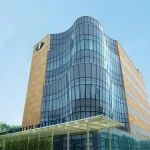Centre for Sight is a renowned group of eye hospitals that has been instrumental in changing the face and service standards of eye care in India.
Centre for Sight eye hospital in Dwarka, is the largest private comprehensive super speciality eye institute in North India. It is a one-stop solution for eye-related diseases and problems. With cutting-edge eye care technologies and infrastructure facilities, we strive to offer comprehensive treatments and surgical and diagnostic services, including an array of internationally approved ocular specialities.
The Centre for Sight eye centre in Dwarka is spread over 90,000 sq. ft. Some of the major highlights of this facility include:
Centre for Sight is a renowned group of eye hospitals that has been instrumental in changing the face and service standards of eye care in India.
Centre for Sight eye hospital in Dwarka, is the largest private comprehensive super speciality eye institute in North India. It is a one-stop solution for eye-related diseases and problems. With cutting-edge eye care technologies and infrastructure facilities, we strive to offer comprehensive treatments and surgical and diagnostic services, including an array of internationally approved ocular specialities.
The Centre for Sight eye centre in Dwarka is spread over 90,000 sq. ft. Some of the major highlights of this facility include:
All these features, along with the decades of experience the eye doctors bring with them, make Centre for Sight one of the most incredible eye hospitals in Dwarka.
The team at CFS is driven by our mission of providing quality eye care to all. Our Dwarka Eye Institute in Delhi houses a specially constructed wing called the NDCFS Foundation for the economically challenged section. It allows our team of eye specialists in Dwarka to provide all consultations, surgeries, and treatment at a subsidised cost without compromising the quality of services.
With a countrywide presence, our group of eye care hospitals has 85+ highly-equipped eye centres. Our eye specialists in Dwarka believe in providing a sincere clinical opinion and treating eye ailments with the utmost care and expertise. With a perfect mix of over two decades of experience, qualified doctors, and technologically advanced procedures, we are committed to maintaining and elevating the distinguished reputation of being one of the leading providers of quality eye care.
Lasik is a surgical procedure for permanently removing the dependence on spectacles or contact lenses by correcting vision. It corrects refractive errors like nearsightedness (myopia), farsightedness (hyperopia), astigmatism, and presbyopia. Centre for Sight has one of the best teams for LASIK specialists who work with state-of-the-art technology to provide patients with a spectacle-free and clear vision.
We also perform SILK, SMILE, and Contoura Vision eye surgery; highly advanced blade-free laser vision correction procedures. All of them come with more precision than the most widely used Femto LASIK procedures. The surgery corrects myopia and treats mild astigmatism with cylindrical power up to 5D.
Cataract implies the clouding of the natural lens in the eye, which decreases the patient’s vision. This causes difficulties in performing daily activities like reading, driving or watching things from a distance. Centre for Sight is one of the best eye hospitals in Dwarka to get cataract surgery.
Since there is no specific medication to cure cataracts, surgery is the only option available for cataract removal. Our eye doctors in Dwarka are well-equipped to offer an array of surgical options depending on the severity of cataracts and the current condition of the patient’s eyes.
We conduct different types of tests for cataracts, including:
Our team in Dwarka Centre conducts two types of surgeries for cataract removal:
The first 5 steps of this surgery are automated to reduce the time and energy required to conduct it. The incisions are blade-free, the capsulotomy is precise, and the cataract is considerably softer. With Femtosecond laser, cataract surgery is now more safe and accurate. Automating the most crucial steps in cataract surgery assures minimum pain & maximum accuracy and also ensures a quick surgery & quicker recovery.
In this method, a surgeon makes a 1.8mm to 2mm large incision to replace the natural lens with an artificial lens. The surgeon manually performs the procedure. It is an incredibly delicate task that requires a lot of skills and is broadly marked by the following features:
Many retinal problems are manageable with proper detection and treatment. The Retina Department of Excellence at Centre for Sight offers an all-inclusive medical and surgical management of complex vitreoretinal diseases with the best possible outcomes.
Our spectrum of services for retina care includes:
At Centre for Sight in Dwarka, we conduct comprehensive eye investigations to detect diabetic retinopathy using the following tests:
Sometimes the ophthalmologist may require more extensive imaging with technologies such as Fundus Fluorescein Angiography (FFA) and Optical Coherence Tomography (OCT) to capture the details of the damage caused by abnormal blood vessels and assess the severity of the condition. Centre for Sight is well equipped with the latest spectral system of OCT & OCT angiography.
An exhaustive eye examination is a must for identifying the type of uveitis. It is equally crucial to check if there is evidence of any other underlying causes, such as autoimmune disorders, infections, trauma, etc. This may involve various tests, including blood tests, X-rays, scans, and more. Treating some forms of uveitis may involve collaborations between ophthalmologists and other specialists such as rheumatologists, infectious disease specialists or oncologists.
Our ophthalmologists in Dwarka offer one of the best treatments for uveitis in India.
We at Centre for Sight, Dwarka, provide effective treatment for the most common corneal conditions such as corneal ulcers.
A corneal ulcer is an open sore that occurs due to various reasons, like infection, severe dryness of the eye, trauma, allergy, and incomplete eyelid closure. We provide both medical and surgical treatment for corneal ulcers.
Centre for Sight, Dwarka has a panel of experienced glaucoma specialists who are skilled in providing advanced glaucoma treatment. The damage done by glaucoma cannot be reversed. However, timely intervention helps to prevent further damage.
We provide a thorough consultation for glaucoma, and the goal of glaucoma treatment is to lower the pressure in the eye to reduce the damage to the optic nerve. Our eye specialists in Dwarka aim to preserve the patient’s vision by medication, laser, or surgery.
There are several eye diseases prevalent in children, such as squint, lazy eye disease, congenital or pediatric cataracts, and retinopathy of prematurity (ROP). For children, the eye-brain connections are still developing, and hence their eyes require crucial attention. They require a different kind of approach & special instruments for diagnosis and treatment.
Our experienced pediatric ophthalmology team is well-trained in pediatric eye care. We ensure your little one receives nothing less than the best care possible. We effectively treat eye disorders like strabismus or squints.
Along with full eye check-ups, there are a number of services provided at our eye centre in Dwarka:
Cancers can affect structures inside the eye and soft tissues surrounding them. Some common ocular cancers are retinoblastoma, choroidal melanoma, and orbital tumours. Our eye hospital in Dwarka offers a contemporary and cost-effective approach to prevent, diagnose, and treat cancers of the eye.
Our centre at Dwarka provides ocular, orbital, and facial prostheses to rehabilitate patients when every other method fails cosmetically. We offer:
Centre for Sight, Dwarka offers comprehensive, state-of-the-art services for cosmetic procedures for the eyes and face. Our experienced ophthalmic and facial cosmetic surgeons combine their in-depth knowledge of ophthalmology with their expertise in cosmetic eye surgery to help rejuvenate and enhance patient’s facial features. You can trust our eye specialists in Dwarka for the look you always wanted to have. We offer a comprehensive treatment for:
Services at the ophthalmic and facial plastic surgery department would include correction of congenital and acquired deformities of the eyelid, lacrimal system, orbit, and socket. The treatment options at the Centre for Sight, Dwarka are ptosis surgery, brow lift, blepharoplasty (upper & lower), Botox, and dermal fillers.
Dry eye is a condition in which a person does not have enough tears to lubricate the eyes. It is a common and chronic eye problem. Tears provide lubrication to the eyes and reduce the risk of infection by washing away foreign matter entering the eyes. If you experience irritated, scratchy or burning eyes and blurred vision, then visit the Centre for Sight in Dwarka, a place which offers comprehensive eye care and treatment for dry eyes.
Centre for Sight has one of the best teams to diagnose and treat the most common neuro-ophthalmological problems, including:
At Centre for Sight, the neuro-ophthalmologists often work in tandem with expert neurosurgeons, neurologists, and radiologists to provide the best possible care, as well as state-of-the-art treatment to the patients. Our eye institute at Dwarka houses advanced, modern infrastructure which helps diagnose many complicated neuro-ophthalmic conditions. Some of these facilities are listed here:
At Centre for Sight, Dwarka, keratoconus treatment is provided by a team of experienced ophthalmologists specialising in corneal disorders. The treatment approach may vary depending on the severity of the condition but commonly includes the following:
Low vision implies diminished sight with minimal ability to see (particularly central vision) that remains unresolved or uncorrected with traditional eyeglasses, contact lenses, intraocular lens implants or corrective surgery. There are many causes of low vision, including, macular degeneration, congenital defects present at birth, injury to the eye or brain, diseases like diabetes, glaucoma etc. However, in some cases, persons with low vision may benefit with special visual devices.
Centre for Sight provides the following services for evaluation and visual rehabilitation for patients with low vision:
With the growing use of digital screens, Centre for Sight addresses CVS by providing treatments and strategies to reduce eye strain, dryness, and discomfort caused by prolonged screen exposure.
Treating retinoblastoma is a complex process as it demands the expertise of ocular oncologists, pediatric oncologists, and even radiation oncologists. Saving the patient’s life is the first goal of retinoblastoma treatment.
Our eye specialists in Dwarka offer the following treatment modalities for retinoblastoma:
Since its inception, Centre for Sight has been guided by the principle of achieving excellence in eye care. We are driven by patient-centric values of efficiency, precision, compassion, and integrity. Hence, everyone should have access to affordable eye care.
Centre for Sight constituted the NDCFS Foundation in 2017. It is a new state-of-the-art facility at our eye institute at Dwarka.
The “Foundation” aims to provide high-quality eye care for all, including medication and cataract removal surgery, especially to socially and economically backward people with very low awareness levels living in the most remote, inaccessible regions.
We want to make sure every visually challenged person in India without insurance or financial resources learns about our remarkable program and benefits from it. Our efforts are focused on eradicating preventable and curable blindness with a concurrent strategy to provide high-quality care, train local personnel and establish a world-class eye care infrastructure where most needed.
Technology has been a driving force for product, service, process, innovation, and social change. For Centre for Sight, the guiding principle for achieving excellence in eye care is to provide specialised eye care with an honest clinical opinion, using the latest technology. Centre for Sight eye hospital in Dwarka, is currently the prestigious site for many multinational projects by reputed companies like Carl Zeiss Meditec and Johnson & Johnson Vision. Together we aim to make eye care more advanced and bring the latest techniques to the doorstep of every Indian at a very affordable price.
Centre for Sight Eye Institute (CFSEI), located in sector 9, Dwarka, is a premier eye-care facility. CFSEI offers long-term fellowship and short-term observership courses to enhance the skill set of Indian, and international ophthalmologists, enabling them to be better placed to serve the community.
Centre for Sight eye hospital in Dwarka offers services such as cataract surgery, LASIK, SMILE eye surgery, glaucoma treatment, retina and uvea services, oculoplasty, facial aesthetics, and computer vision syndrome management, among many more services.
SMILE is a minimally invasive laser eye surgery that corrects nearsightedness and astigmatism with a faster recovery time and reduced risk of dry eyes.
Most patients can resume normal activities within 24 hours of the LASIK procedure.
Centre for Sight offers early detection and advanced surgical treatments for glaucoma to help manage the condition effectively.
You can easily book an appointment by calling 011-4250-4250 or filling out an online form available on our website.
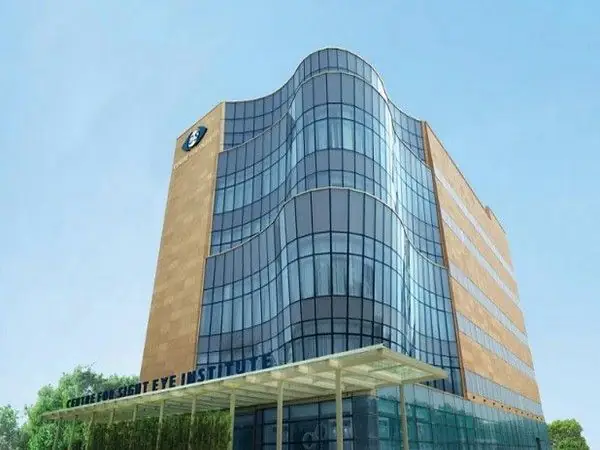
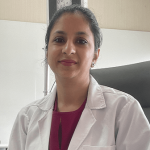
Specialities
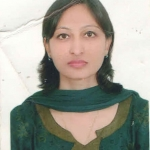
Specialities

Specialities
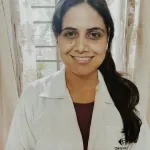
Specialities

Specialities
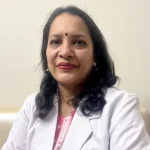
Specialities
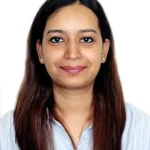
Specialities
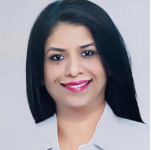
Specialities

Specialities
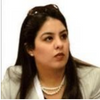
Specialities

Specialities
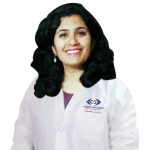
Specialities
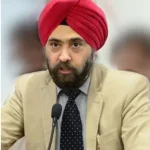
Specialities
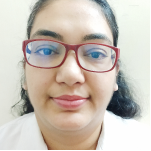
Specialities

Specialities
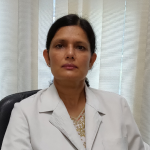
Specialities
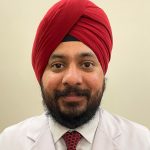
Specialities
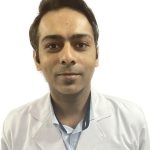
Specialities
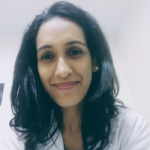
Specialities
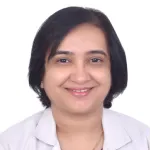
Specialities
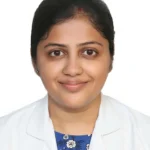
Specialities

Specialities
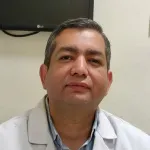
Specialities
Free Parking Available at this Centre
All Major Credit/Debit cards accepted
Find a doctor tool assists you in
choosing from our diverse pool of health specialists. Discover better health & wellness by using our doctor ratings & reviews to make your choice
Find an eye specialist
From locating one of our centres across India to booking an appointment, we are just a click away!
Locate a Centre
The SMILE laser eye surgery is a short form for Small Incision Lenticular Extraction. It is a highly advanced technology.
See Our All Specialities
Centre For Sight . 2024
